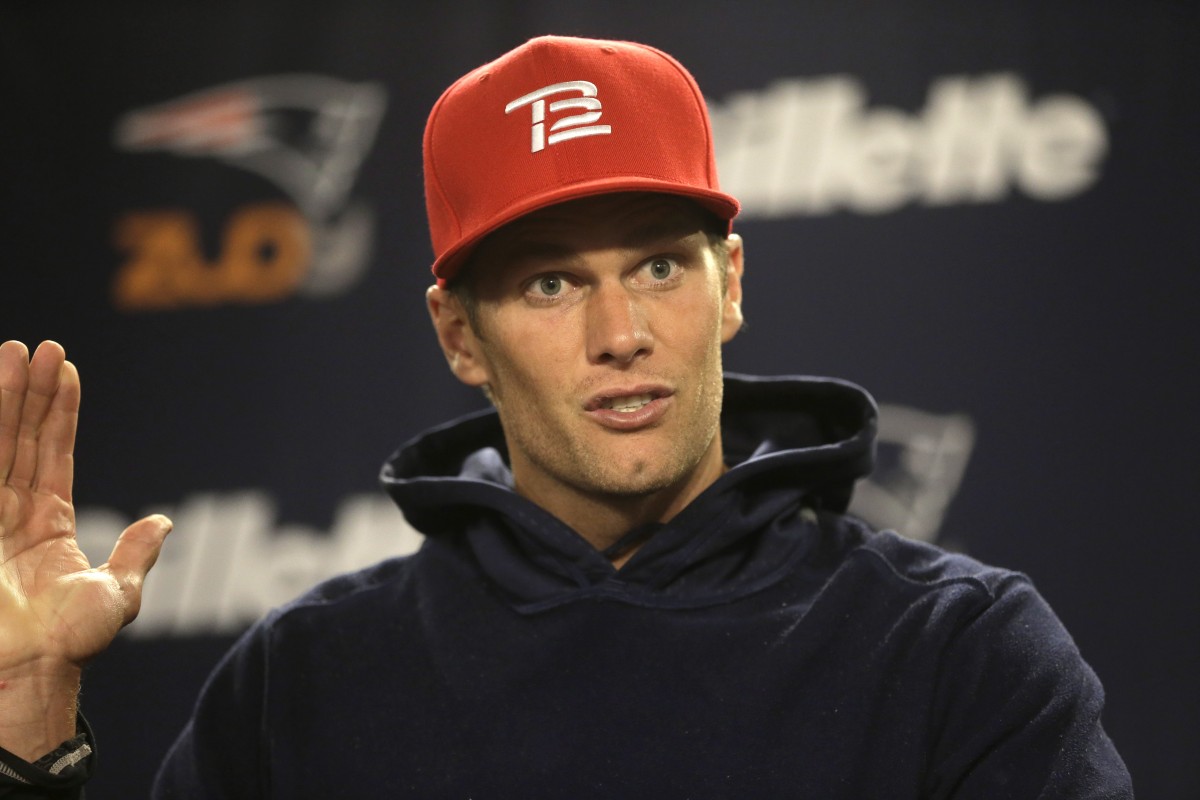After a Year of Scandal, Tom Brady Finally Showed Us Who He Is

Photo via AP
Prior to this season, arguably the most controversial moment of Tom Brady’s career was when he told Patriots fans to start drinking early before a late Sunday afternoon game against the San Diego Chargers. But then Roger Goodell and the NFL attempted to destroy his reputation over slightly deflated footballs, and Brady became the most polarizing athlete in the country.
He also, for the first time, provided a glimpse into who he really is—even if it was mostly unintentional.
Throughout the interminable Deflategate saga, innocuous details about Brady’s personal life were revealed. More than 1,400 pages of Brady’s emails were released in August due to the NFL Players’ Association’s lawsuit against the league, which showed him squabbling over an $8,500 pool cover and begging the owner of the Vancouver Canucks to donate to TB12, the Sports Therapy Center that he operates in conjunction with his body coach, Alex Guerrero.
Then there was the commotion over the cell phone. When Goodell decided to uphold Brady’s four-game suspension in late July, he wrote in his ruling that Brady had “destroyed his phone” during the investigation in an apparent effort to hide incriminating text messages about deflated footballs. But Brady’s agent, Don Yee, insisted it’s common practice for his client to cycle through cell phones, like many other A-listers.
As Deflategate raged on over the spring and summer, Yee became Brady’s de-facto spokesperson. He ripped into the NFL on several occasions, calling its discipline of Brady “ridiculous” and deriding the entire appeal process as a “sham.” Brady, meanwhile, largely stayed out of the public eye and avoided talking about his ongoing litigation against the league.
Though Brady tried to remain as inoffensive as possible, Yee’s attacks were a look into how he viewed the NFL’s seeming vendetta against him. His father spoke up on his behalf, too, blasting a Bay Area sports talk radio host who said he believed Brady was guilty of illegal ball deflation.
Oddly enough, what eventually broke Brady out of his milquetoast demeanor weren’t accusations against himself, but rather Guerrero—his personal guru, business partner, and confidante. When Boston published an expose on Guerrero in October, reporting the Federal Trade Commission sued him in 2004 for his role as the pitchman for a fraudulent cancer cure, Brady jumped to his defense during an interview on WEEI’s Dennis & Callahan.
“We’ve talked about several things as it relates to that, and he dealt with that,” Brady said. “I mean, that’s part of his life and that’s something that happened 13 years ago… Nutritional supplements and FTC regulation, and all those types of things, there are a lot of gray areas.”
But Brady saved his sharpest criticism for Coca-Cola and America’s food industry, which he said is poisoning our kids.
The exchange revealed perhaps two of Brady’s most indelible traits: Loyalty and his unwavering obsession with nutrition. Both have produced numerous headlines over the last several months.
The former was on display in December, when Brady refused to distance himself from his friend Donald Trump despite the increasingly jingoistic tone of the Republican front-runner’s presidential campaign. When Trump’s signature “Make America Great Again” hat was spotted in Brady’s locker earlier in the fall, he responded by saying it would “be great” if Trump were elected president. Brady never backed off his statement, only saying politics are “way off his radar.”
Brady’s apparent tacit endorsement of Trump doesn’t seem to be as much about policy as it is about allegiance. Trump was one of the few celebrities who consistently had Brady’s back throughout Deflategate, pushing back against an American public that was eager to label him as a cheater.
This may have been Brady’s most taxing season, given all of the scrutiny he was under. Despite that, he turned in one of his best performances ever—at 38, when most quarterbacks fall off.
Brady credits his rigid nutritional regimen for his ability to stay at the top of his game into his late 30s. He doesn’t eat tomatoes, mushrooms, or fruit—and has never tried coffee. It’s a stringent diet that’s been roundly ridiculed, and yet, Brady hasn’t missed a game due to injury since 2008 and is playing better now than he was 10 years ago. Clearly, he’s doing something right.
At the end of every Patriots season, questions about how much longer Brady can hold on rise to the surface. But if this year is any indication, the end is far from here. Even when Brady was getting pummeled in the AFC Championship against the Broncos, he still managed to connect with Rob Gronkowski on an improbable 40-yard completion on fourth down and led the Patriots into the end zone for a late score. If the Patriots could’ve converted the two-point conversion, it would’ve been remembered as one of Brady’s finest comebacks.
At the end of his 16th professional season, Brady has further cemented his status as arguably the greatest player to ever step onto a football field. But he’s also showed us who he is off it, which may be the most welcome addition to his legacy yet.


